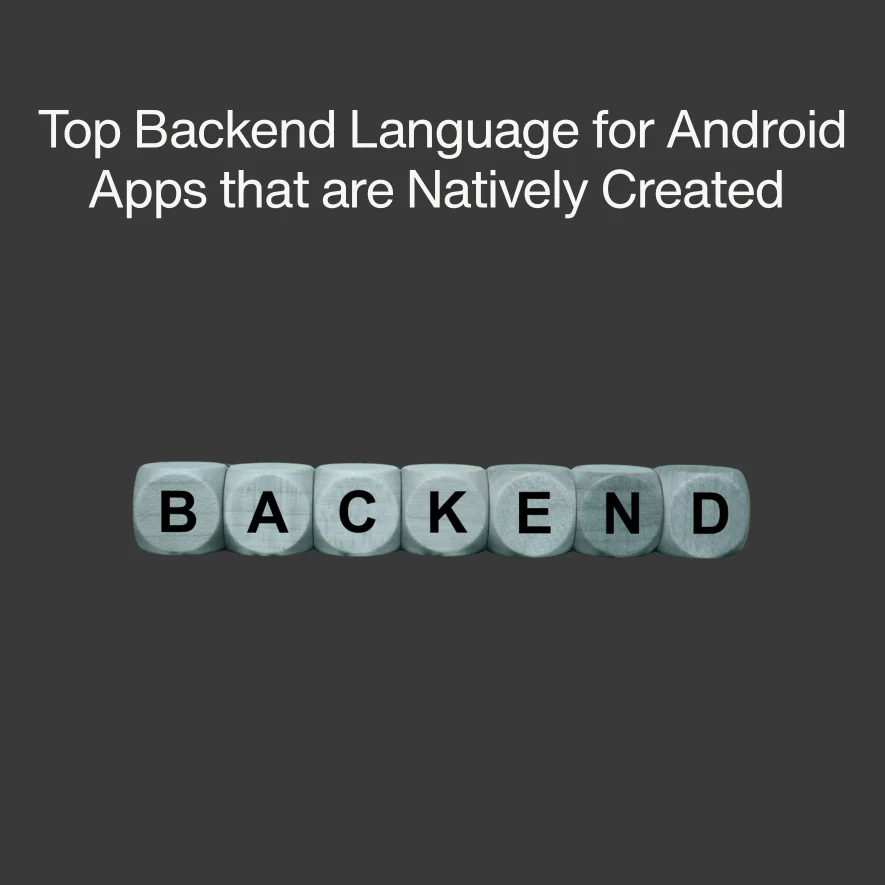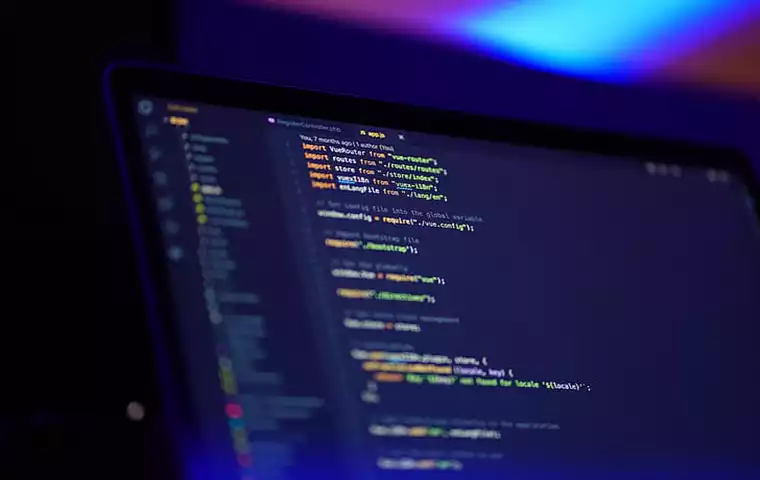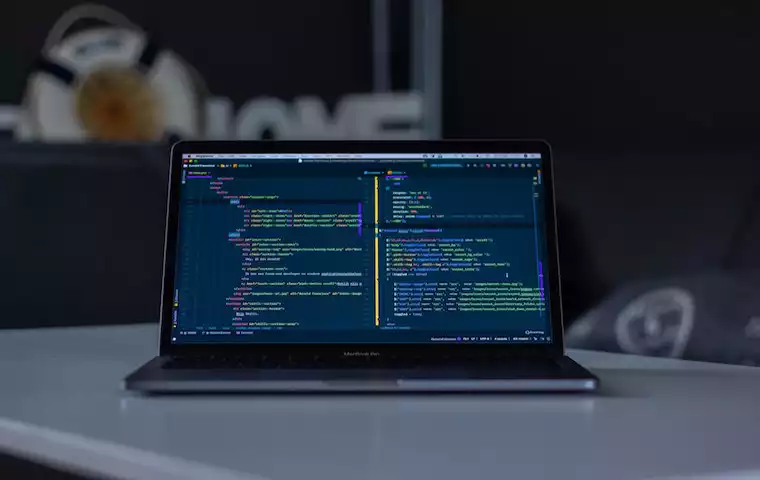The New Era of AI in 2025: From Gemini 3 to Creative AIs
Learn about the best AI tools for 2025, including Nano...
We use cookies for our website to give you the most relevant experience by remembering your preferences. By clicking “accept”, you consent to use of ALL the cookies
This website uses cookies to improve your experience while you navigate through the website. Out of these, the cookies that are categorized as necessary are stored on your browser as they are essential for the working of basic functionalities of the website. We also use third-party cookies that help us analyze and understand how you use this website. These cookies will be stored in your browser only with your consent. You also have the option to opt-out of these cookies. But opting out of some of these cookies may affect your browsing experience.
Necessary cookies are absolutely essential for the website to function properly. These cookies ensure basic functionalities and security features of the website, anonymously.
| Cookie | Duration | Description |
|---|---|---|
| cookielawinfo-checkbox-functional | 11 months | This cookie is set by GDPR Cookie Consent plugin. The cookie is used to store the user consent for the cookies in the category “Analytics”. |
| cookielawinfo-checkbox-functional | 11 months | The cookie is set by GDPR cookie consent to record the user consent for the cookies in the category “Functional”. |
| cookielawinfo-checkbox-necessary | 11 months | This cookie is set by GDPR Cookie Consent plugin. The cookies is used to store the user consent for the cookies in the category “Necessary”. |
| cookielawinfo-checkbox-others | 11 months | This cookie is set by GDPR Cookie Consent plugin. The cookie is used to store the user consent for the cookies in the category “Other. |
| cookielawinfo-checkbox-performance | 11 months | This cookie is set by GDPR Cookie Consent plugin. The cookie is used to store the user consent for the cookies in the category “Performance”. |
| viewed_cookie_policy | 11 months | The cookie is set by the GDPR Cookie Consent plugin and is used to store whether or not user has consented to the use of cookies. It does not store any personal data. |
Functional cookies help to perform certain functionalities like sharing the content of the website on social media platforms, collect feedbacks, and other third-party features.
Performance cookies are used to understand and analyze the key performance indexes of the website which helps in delivering a better user experience for the visitors.
Analytical cookies are used to understand how visitors interact with the website. These cookies help provide information on metrics the number of visitors, bounce rate, traffic source, etc.
Advertisement cookies are used to provide visitors with relevant ads and marketing campaigns. These cookies track visitors across websites and collect information to provide customized ads.
Other uncategorized cookies are those that are being analyzed and have not been classified into a category as yet.
Cyberia Tech, Inc. respects your privacy. This Privacy Policy explains how we collect, use, and share your information. By using our services, you agree to this policy. If any other agreements conflict with this Privacy Policy, the terms of those agreements prevail.
Cyberia Tech complies with the EU-US and Swiss-US Privacy Shield Frameworks for handling personal data from the EEA, UK, and Switzerland. In case of any conflict, the Privacy Shield Principles prevail. Learn more at Privacy Shield. Key Definitions
Information linked to an individual, transferred from the EEA, UK, or Switzerland to the U.S.
Data revealing race, religion, health, sexual orientation, and similar categories.
Effective Date: [ 2026 / 03 / 05 ]
Welcome to The Cyberia Tech ! By accessing or using our website or services, you agree to
comply with and be bound by these Terms of Use and our Privacy Policy. If you do not agree with
these terms, please do not use our Services.
Loading
0 %

Your Android smartphone has an android app backend language. You are probably aware of this, yet every smartphone you use daily is made with a specific backend language for Android apps.
The backend of the program controls everything, which is the cause. Who cares what happens behind the scenes when we can share, enjoy ourselves, and comment on the posts?
For this little whole-pack phone, picking the appropriate Android backend language is crucial. You can read this article to learn why they are significant.
Table of Contents
Backend in app development, which is essentially server-side, comprises frameworks for writing programming languages, creating apis, libraries, and working with system components while developing mobile apps.
The programmer creates programs for the Android operating system or iOS. You can read more about backend mobile app development Android in another article.

This allows the database and the application to talk to one another. The unseen part of the system is responsible for keeping the app, database, and servers running smoothly.
For such a long time, this OS has supported some of the best and most popular programming languages. The entire development process can be optimized by selecting the correct Android backend language.
It’s important to consider three goals efficiency, popularity, and growth, when deciding to create the app.
The most well-known one. This is the programming language behind the Android operating system.
It’s really old, yet it still gets around. Nonetheless, some people believe Kotlin overtakes Java because of its promising future. Some of its aspects are:

Java is reasonably responsive if your app requires a lot of CPU power. Supplying several libraries, such as those for JSON Parsing, unit testing, etc.
Java’s Virtual Machine Check, which analyses Java bytes to check for viruses, is a security feature you can rely on. Despite many useful and innovative features, the process is expensive and time-consuming.
Moreover, using Java GUI as a toolbox to create engaging interfaces is insufficient.
2. Kotlin
The new backend language for Android apps competes with Java for market share. Safety, tooling assistance, and transparency are its significant objectives.
Google has fully approved Kotlin for Android app development since 2019. The best thing about Kotlin is that lines don’t need to end with a semicolon. It has alternatives for beginners and is more accessible to learn than Java.
It reduces the required coding, which cuts down on development time. Because codes are advantageous, developers are willing to read and modify them.
Also, it is easy to call Kotlin or Java code from one another. The lack of primitive types is one issue you encounter when dealing with Kotlin. The functions are challenging to grasp and control. The other is Java’s low compilation speed.
3. C++
Why use C++? It excels at complex app development. It is also widely used in video games. C++ can be used to create 3D animations, rendering, and modeling. In its options, you can:

The fact that it communicates directly with the hardware increases its practicality. It’s not just a profitable game and Android app backend language OS, but also databases and embedded systems.
This powerful language offers extensive capabilities for managing and collecting memory. But, if the disadvantageous data is not filtered out, it can become an issue.
4. C#
Java and C# are very similar languages. Because it has garbage collection, there are no memory leaks. On the other hand, it provides much cleaner and simpler syntax.
The main limitation of C# as a backend language for Android app development is that it only runs on Windows systems with the .NET framework.
The garbage collection feature will assist you in improving the development execution process. If you do not have the.NET framework, Xamarin can help you with this.
With the help of Xamarin and its provided tools, you can create native Android apps and deploy them across multiple platforms.
Another advantage is the reusability of codes, classes, relationships, and code troubleshooting.
The disadvantage is that this language is unable to communicate precisely with the hardware. You’ll learn more about other languages soon.
Which language is used in Android backend?
Kotlin is a modern computer language that is statically typed and is used by more than 60% of skilled Android developers. It helps improve speed, developer happiness, and code safety.
Which backend language is best for Android App Development?
If you want to make an app for Android, you might want to use Java. A recent study found that about 69.7 percent of developers use JavaScript. This makes it the most popular language among coders. HTML/CSS is the second most-used language for coding, with 62.4% of respondents saying they use it.
Which language is used for app backend?
Java. If you need software for large businesses, you can’t go wrong with Java as a language. How is Java used? It is a back-end computer language that is used to make apps for Android, PC systems, and other systems.
Can I use Python for Android backend?
For the back end of Android apps, developers can use the following computer languages:PHP, Python, and JavaScript
Now that you know what the Android app backend languages are, you can use this knowledge to decide which one is best for your application.
Each component of this server side serves a specific purpose, and the backend language for android app can ensure how useful your app is.
The next step is to find a mobile application development company that can provide you with the best services within your budget to kickstart your new idea.
In the case of smartphones, an intelligent developer uses the best option, particularly on the Android backend language.
Please share your experience with us and indicate which of these languages are appropriate based on your knowledge.
You Can Get More Information!
